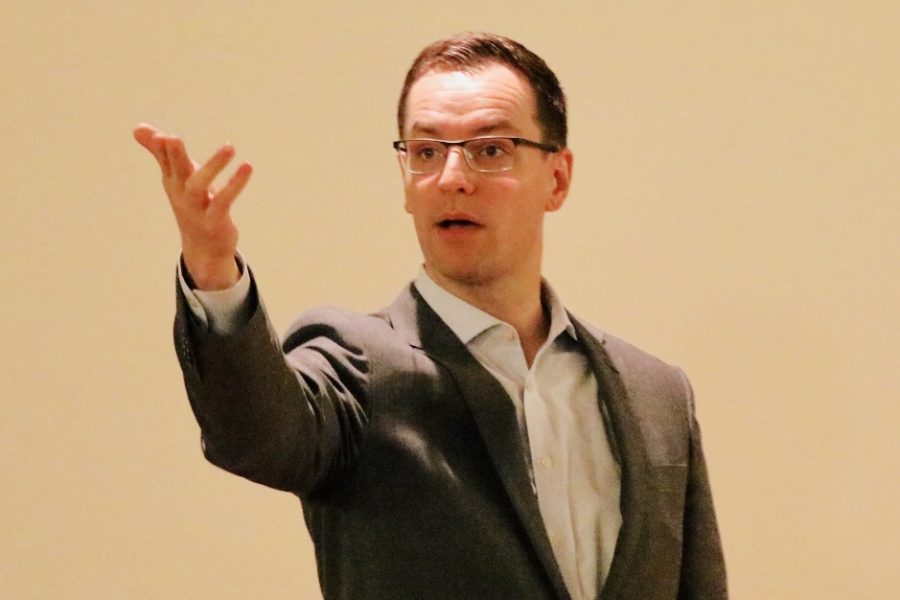College Democrats Host Campaign Manager Robby Mook
By Hanna Decker
On Wednesday, April 3, the College Democrats hosted Robby Mook in the Flom Auditorium in Walsh Library. Mook was Hillary Clinton’s campaign manager during the 2016 presidential election.
Mook has a number of achievements under his belt, including accomplishments before Clinton’s election. For the 2016 election, he was able to build a history-making $1 billion, 50 state, 3,500 person campaign.
President Sophia MacMaster, FCRH ’19, and Vice President Michael Fissinger, FCRH ’21, said they went through the Worldwide Speakers Group in order to get in contact with Mook. From there, they worked closely with the Office for Student Involvement to plan the details of the event.
MacMaster was a field organizer for Clinton in North Carolina and was especially excited to hear from Mook.
“Robby’s perspective is unlike any other because of his direct connection with the 2016 campaign,” stated MacMaster. “The campaign he ran in 2016, though didn’t result in a winning election, was extraordinary on many fronts.”
Mook spoke on a number of topics including the 2016 election and its results as well as the what to expect heading in during the 2020 election season. He covered both the primary and general elections, as well as the pertinent strategies while also discussing the new Democratic candidates and what the public can expect from them.
Mook spoke about what impacted the 2016 election results. He commented on the shift within the electoral terrain as well as the quick transitions that the population as a whole underwent in their voting patterns.
“How educated you were [on the election] drove how you voted.” Mook said.
Based upon the trends he saw, most people voting for Clinton were college-educated. He also noticed a large population of minorities favoring
Clinton over Trump. However, he also mentioned a shift in state loyalties.
“States that you once thought were safe were now split and often in jeopardy of being lost,” said Mook.
He said Texas and other southwestern states were slowly mobilizing support for the Democrats while southeastern states were becoming more and more Republican, shifting the status quo that had stood for a number of decades.
Mook said that the way the news worked during the election was different than previous years: news broadcasters make money based on ‘clicks,’ and their best strategy in acquiring these ‘clicks’ is suspense.
“Policies are of secondary importance to polling when it comes to news coverage,” said Mook. This is due to the fact that polling involves suspense and keeps the audience on their toes while policies is just listing information that the public could acquire themselves.
News broadcasters are also responsible for covering both sides equally in order to hold them both accountable.
However, Mook said that if one side has a few minor infractions while another side has many major issues, the media coverage can begin to cause both sides to appear equally horrible when that is not the case.
Mook covered how these facts may have impacted Clinton and how they could impact other candidates in the future. As he worked his way into the end of his speech, he spoke on the 2020 Democratic candidates and the outlook for their election, mainly focusing on Biden and his status as a front runner –despite not yet announcing a candidacy.
“I hope the university community gained a sense of some of the major factors that drive national political campaigns,” stated Fissinger. “I hope everyone in attendance found him insightful and was able to learn something new, about politics, campaigns, etc., from his talk.”
Mook ended his talk with words of encouragement for the audience. “You need to understand the resource you have and use it,” he said. He spoke about the enormous potential our generation has to impact our society and the world. In Mook’s words, we have to “just go do it.”







































































































































































































